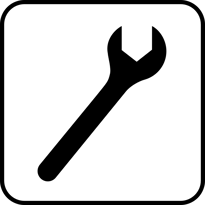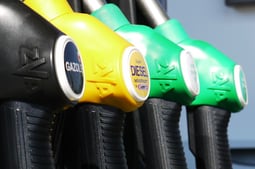
On numerous occasions now, we have devoted our blog to the necessity of cutting fleet costs. Whether we’re discussing end-of-year or finalizing budgets in our blog posts, and in just about every meeting or discussion, the topic of costs and how to cut them will never go out of style!
But what are the top cost containment concerns for fleets and how can you improve and reduce expenditure in these areas? Let´s have a look!

#1 - Controlling fleet safety costs
Safety has been disregarded in the past—grudgingly attended to primarily for auditing purposes—but is gradually becoming more of a priority as companies need to protect workers and also, in the case of businesses using fleets, other road users. Furthermore, companies cannot ignore recent corporate manslaughter legislation, nor can they afford to overlook the importance of company reputation.
Increasing costs are generally a symptom of a poor health and safety system, where there are no proper risk assessment procedures and/or training programmes for drivers in order to eliminate the toll of preventable accidents. Health and safety complacency also contributes to increased repairs, vehicle replacements, employee downtime… in a never-ending chain of costs.
There is definitely room for improvement for many companies: action can be taken such as training drivers, monitoring their driving style in order to make it safer, sensitizing staff to driver distraction, setting up policies and systems within the company, or even recourse to technology, to mention just a few.

#2 - Managing fleet maintenance costs
Strongly connected to safety (despite what many people might think), is maintenance. A maintained vehicle is a safe vehicle. But most of the time people forget about maintenance… and continue to do so, as long as everything is still running smoothly. One day a breakdown occurs or an accident and they suddenly realise just how important it is to have a maintenance system in place. Again, set up a maintenance policy, use tools for recording maintenance and promote walk-around checks as well as weekly and monthly checks—these are also a legal requirement…

#3 - Decreasing fuel costs
Although fuel prices are, relatively speaking, more predictable—fuel will always be an expense that your fleet needs to factor in to the budget. Even though this is, for the most part, an expected overhead, it is likely that your fleet is spending unnecessary money on fuel as well. Some of the contributing factors to unnecessary fuel consumption include vehicle idle and drive time, speeding, and inefficient routing. The use of fleet telematics can prevent unnecessary fuel costs by enforcing acceptable idle time thresholds with automated alerts, monitoring driver efficiency to catch drivers who speed to make up their time, and identifying drivers that may be taking longer routes to job sites in order to pad out their hours.
For more information, see our blog post to see how you can build an efficient, safe driving culture while cutting costs.



